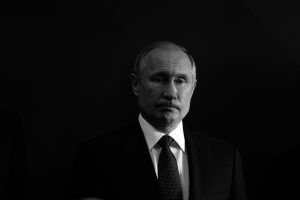
The methodological differences in International Relations represent a distinct separation between positivist and post-positivist approaches.
January 11, 2024

So-called big debates in the International Relations’ literature date back to 1920s and 1930s when the literature first emerged. Those debates shaped our academic understanding of international relations. When those debates reflected on, one striking fact is that the last one is unique in the sense that it paved the way for pluralist understanding of methodology and challenged the foundational, taken for granted assumptions of rationalist scientific inquiry.
This was an attempt that no previous debate in the literature didn’t take. So, what is even the debate all about? It is first useful to differentiate what positivism and post-positivism means in the literature and how Critical realism can really offer useful perspective because it makes the researcher’s core assumptions more apparent and stronger. It might be the exit from the “anything goes” relativism.
First and foremost, the debate is basically about how we should study international relations, i.e. the methodology. The two sides of the debate are the positivist/post-positivist approaches. The positivist approach is the approach that uses empirical epistemology and objective facts in its ontological core. One of the major positivist/rationalist works in the literature is Stephen Waltz’s 1979 book Theory of International Politics, which attempts to theorize international relations through positivist, objectivist lenses that embrace the idea that social sciences can be studied as same as natural sciences.
Positivist researchers are pragmatists, in the sense that they manifest legitimization of true knowledge through the perceived and measurable data; so knowledge should be useful, not truthful, according to them. In short, ideas, norms, values as opposed to facts, do not have place in the scientific inquiry. By doing so, ahistoric, objective and universal knowledge can be cumulated.
On the other hand, post positivist approaches try to capture the matters of interest from a different perspective. In IR sense, it was initially a response to rationalist orthodoxy in the discipline. It is a debate on ontological (what there is to know) and epistemological (what can we know) assumptions of “cumulative behavioural science” that dominates the discipline. Post structuralists attacked this methodological monism of “scientific inquiry” by criticising scientific claims of truth and objectivity and distinguishing between facts and values that in the end produces no sufficient understanding to knowledge, as well as offering “pluralist” understanding of scientific knowledge.
To post structuralists, language has a significant importance in the meaning construction of “things” with its social and political characteristic unlike positivists argue. In other words, language is political not neutral, unlike rationalists try to separate. In this view, ‘individual human being’ is a historical construction which is always time and space bound, which in the end means that there is neither “human nature” nor a universalist meaning of a human. Pioneer philosophers such as Michel Foucault and Jacques Derrida preoccupied with the discursive construction of self through the other as well as construction of reality through cultural contexts since we cannot make categorical assumption of values either good or bad or right or wrong.
The discourses of things are not fixed, they are produced and reproduced through language practices, and form an order, an identity both through “linking” and “differentiation” from the other. So, this identity formation does not happen as Constructivists argue. “Policy discourses construct—as do discourses in general—problems, objects, and subjects, but they are also simultaneously articulating policies to address them”. Post structuralists also embrace a celebratory perspectivism, which according to them, opened a thinking space for new debates in the discipline of IR from feminism to postcolonialism.
According to rationalists/positivists, the postmodern accounts can be either critique of foundations of scientific inquiry, or an aesthetical strategy aiming at the relativization of scientific account in general. Reading reality as intertextual relationship brings the reader to ‘anything goes’ relativism that celebrates “nothing outside of the text”.
So where does it stand and in what sense can it be a valid methodological answer to the fourth debate? It is better answer to first point out where it does not stand. It is not as a middle ground as Alexander Wendt does his social constructivist answer. The critical realist stance is more like an alternative to positivist/post positivist radicalism, not a middle ground. Patomaki and Wight, in their article After Postpositivism? make an insightful critique of both sides of positivism and post positivism based on critical realist approach. The main critique is that the problem of the fourth debate is scholars’ mixing the ontological and epistemological premises.
Due to this problem, both positivism and post-positivism suffer from anti-realism. For neorealists/positivists, the ‘reality out there’ is defined by observation of the researcher but limited to experience (se est percipi) and for the post positivists, it is limited to discourse (esse est dictum esse). If discourses construct the objects to which the discourses refer, then the discourse itself can never be wrong about the existence of its objects, in any meaningful or methodologically interesting way.
Nor can an alternative discourse possibly critique another discourse, since the objects of a given discourse exist if the discourse says they exist. In this regard, positivism isn’t different than post positivism in the sense that it takes ‘the world out there’ as appearances and does not imply further questioning on the “nature of things” which is against the idea of science itself. That’s why positivists like Stephen Waltz manifest legitimization of true knowledge through the perceived and measurable data; so that knowledge should be useful, not truthful.
Does it even make sense to dive into a methodological and philosophy based debates in IR? Some think that foundational meta theories do not imply a fruitful dialogue when those paradigms are so isolated from one another and also, they are controversial even in the area of philosophy of science, and won’t be solved in the host discipline of IR. It is true that it is a philosophical debate carried by people who generally do not have a professional background in philosophy. The writers on this camp seem as evasive as critiques attack them.
I think the post positivist challenge is useful even though many writers in IR, apply interpretivist post modernist analysis in their research without going deep into its ontology and epistemology, meaning that they are simply confused on the methodology. However, it should be also remembered that critique of foundations of a scientific inquiry can be revolutionary and open new ways in science in general. Locating positions in philosophy of science in general and in IR in particular is nothing more than providing a solid base in research design.
A curated seletion of FA’s must-read stories.
Written By: DILARA SAHIN
Written By: RIZWAN RAFI TOGOO
Written By: ERIC SONG
Written By: BATUHAN GUNES
Written By: E. ERDEN
Written By: SHOHREH POOLAB
Written By: ALEYNA TASTAN
Written By: CIHAN KAAN GAZI

Ceren Ozgun, holds a MA degree in International Relations at the University of Kent, Canterbury UK. Her main research interests are European integration and EU affairs and international relations theories.
Written By: GABRIEL RAMIREZ
Written By: DILARA SAHIN
Written By: DILRUBA YILMAZ
Written By: NILAY CELIK
Written By: ELDANIZ GUSSEINOV
Written By: JOSEF SCHOEFL
Written By: SELCAN BEDIRHANOGLU
Written By: FATIH CEYLAN
FA’s flagship evening newsletter guilding you through the most important world streis ofthe day. Delivered weekdays.
